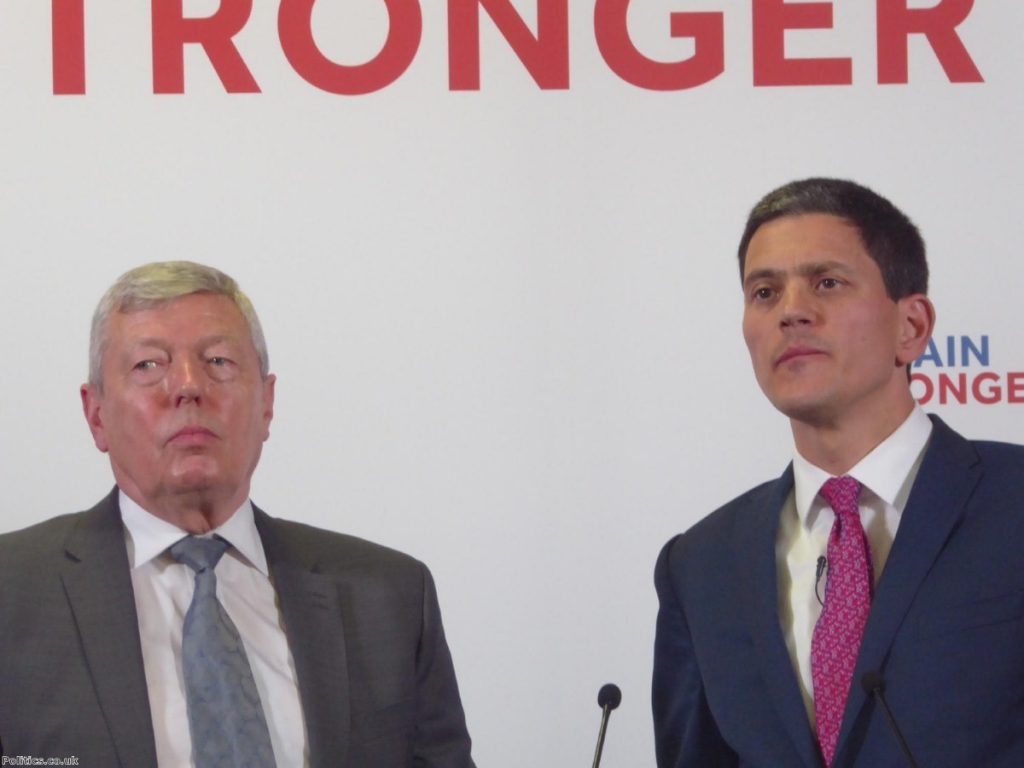If David Miliband is the Remain campaign's best advocate for staying in the EU, then they are in much bigger trouble than I thought.
Speaking in Westminster today, the US-based former MP delivered what he boasted would be a "passionate and patriotic speech".
Now leaving aside the question of whether it is wise to review your own speech before you've even delivered it, in reality there was little that was either patriotic or passionate about Miliband's lecture.
Perhaps the former Labour leadership hopeful does hold passionate feelings about Britain's relationship with the EU. Perhaps when he's at home in New York, he regularly wells up in a fit of pathos about Britain's potential exit from the single market. But whatever feelings Miliband holds in private, they were difficult to spot among his lengthy passages on the "global commons" and the "multiplier effect" of Britain's international diplomatic arrangements.


At one point Miliband digressed to talk about what he called the "British Question" of Britain's relationship with the world. "My answer to that question is quite simple," he insisted, before embarking on a detailed mini four-point lecture on what that answer was.
Almost every sentence of Miliband's speech was a reminder of why he failed to beat his younger brother back in 2010. Spelling out his big campaign messages, he insisted that voters should back remaining in the EU because "Europe multiplies our development policy." If that wasn't a simple and compelling enough message, he added that a vote for Leave would be a "cold, hard lesson in the demon of hubris".
"My message is simple," he repeated again."Unilateral political disarmament is not a joke or a jape."
His key campaign messages were far from compelling. At one point he mused that exit from the EU would hamper Britain's ability to tackle Somali pirates. Now far be it from me to dismiss the importance of policing arrangements in the Indian Ocean, but it is hardly likely to motivate thousands of pro-EU voters to the polls.
At another point he pondered that Brexit would put at risk the trend of countries joining multinational regional blocs. While not wanting to downplay the importance of supporting the Pacific Alliance and the Gulf Cooperation Council, it's hardly likely to be a key deciding factor for many Labour voters in Manchester and Rotherham.
Now there are probably audiences in Washington who would have lapped up Miliband's speech today. There are also some in Labour who still long for the return of their telegenic "king over the water". But when it comes to the vital search for a compelling frontman for the campaign to stay in the EU, Ed Miliband's less articulate brother is sadly not the man for the job.

